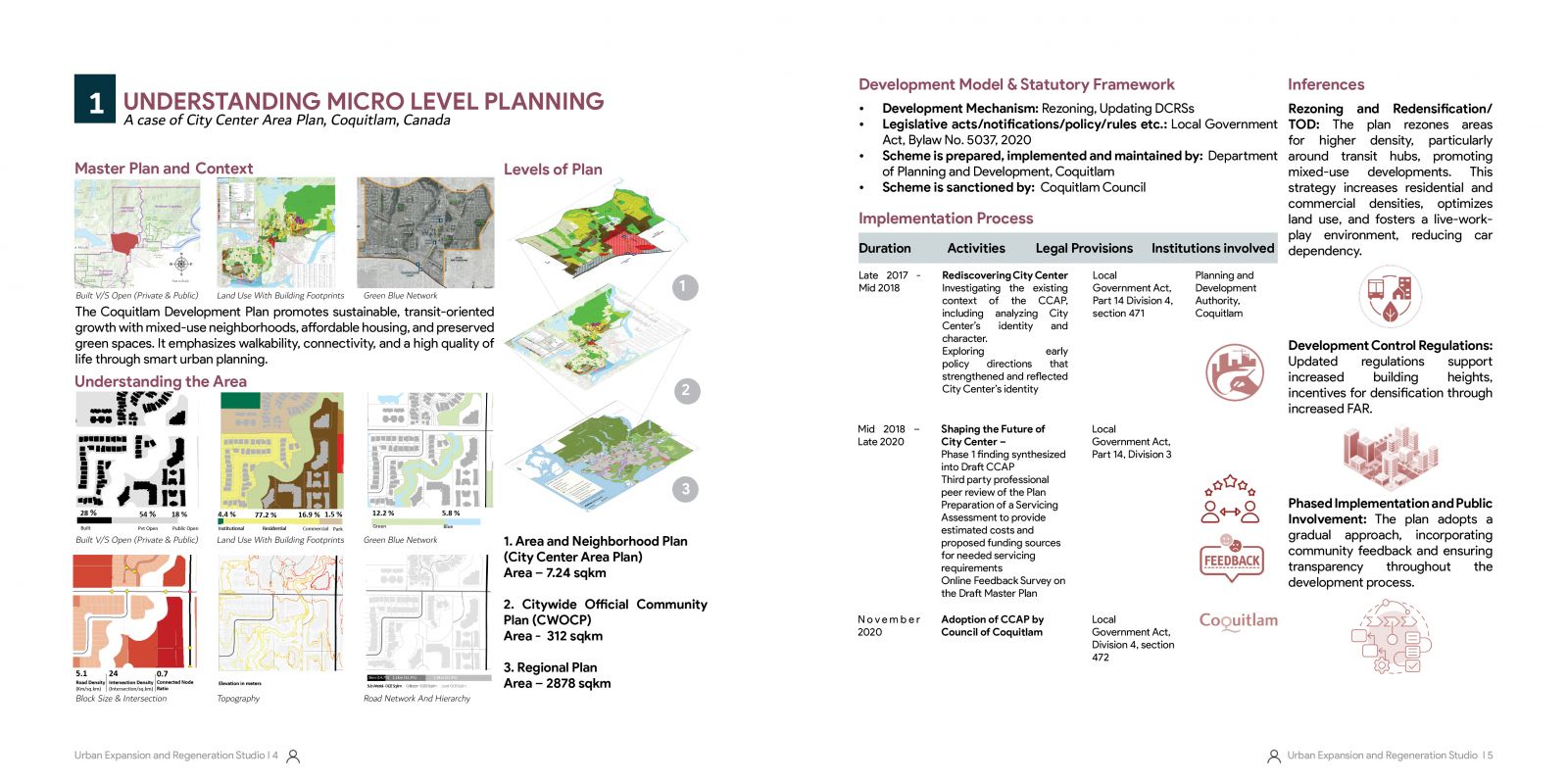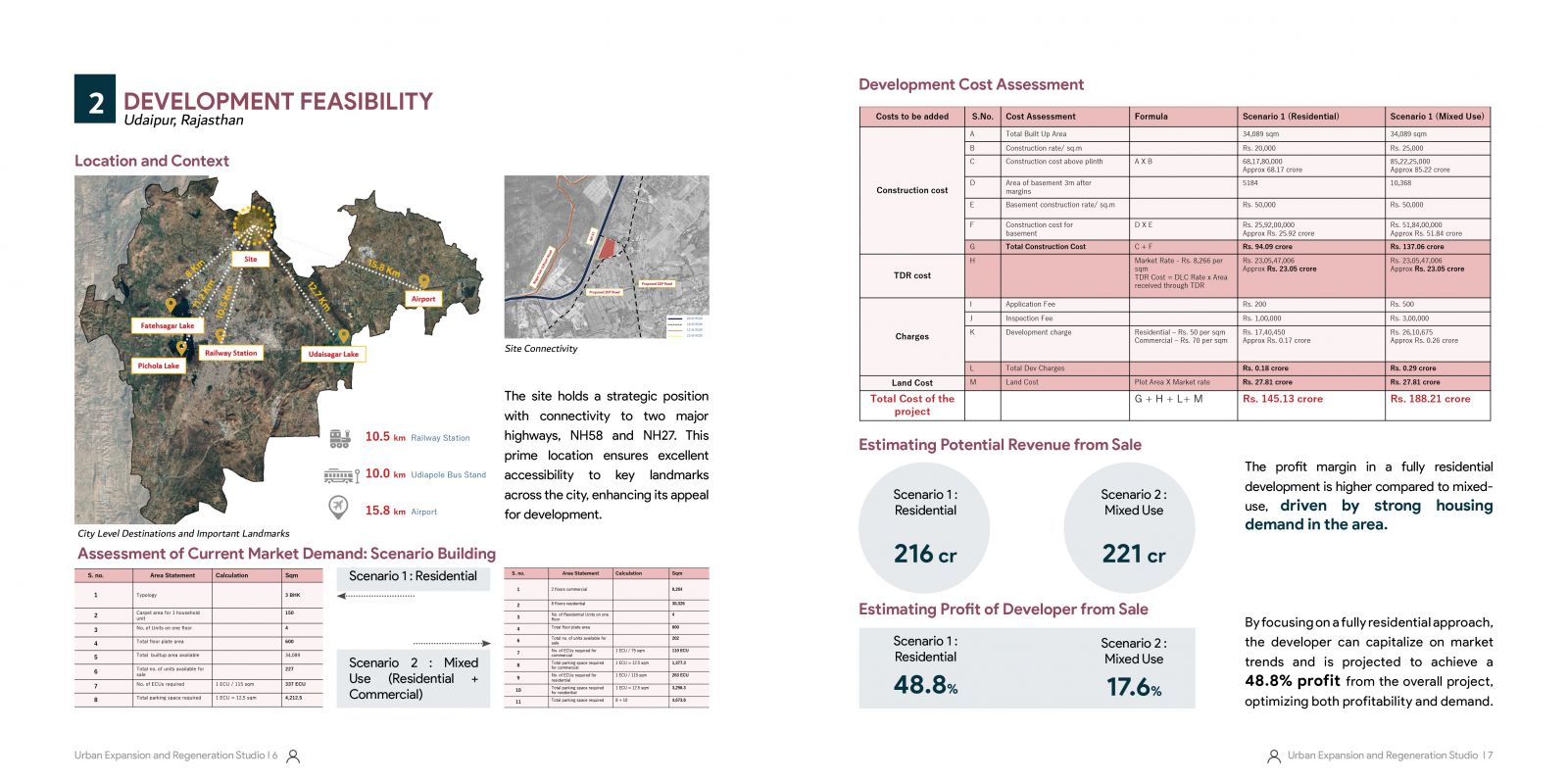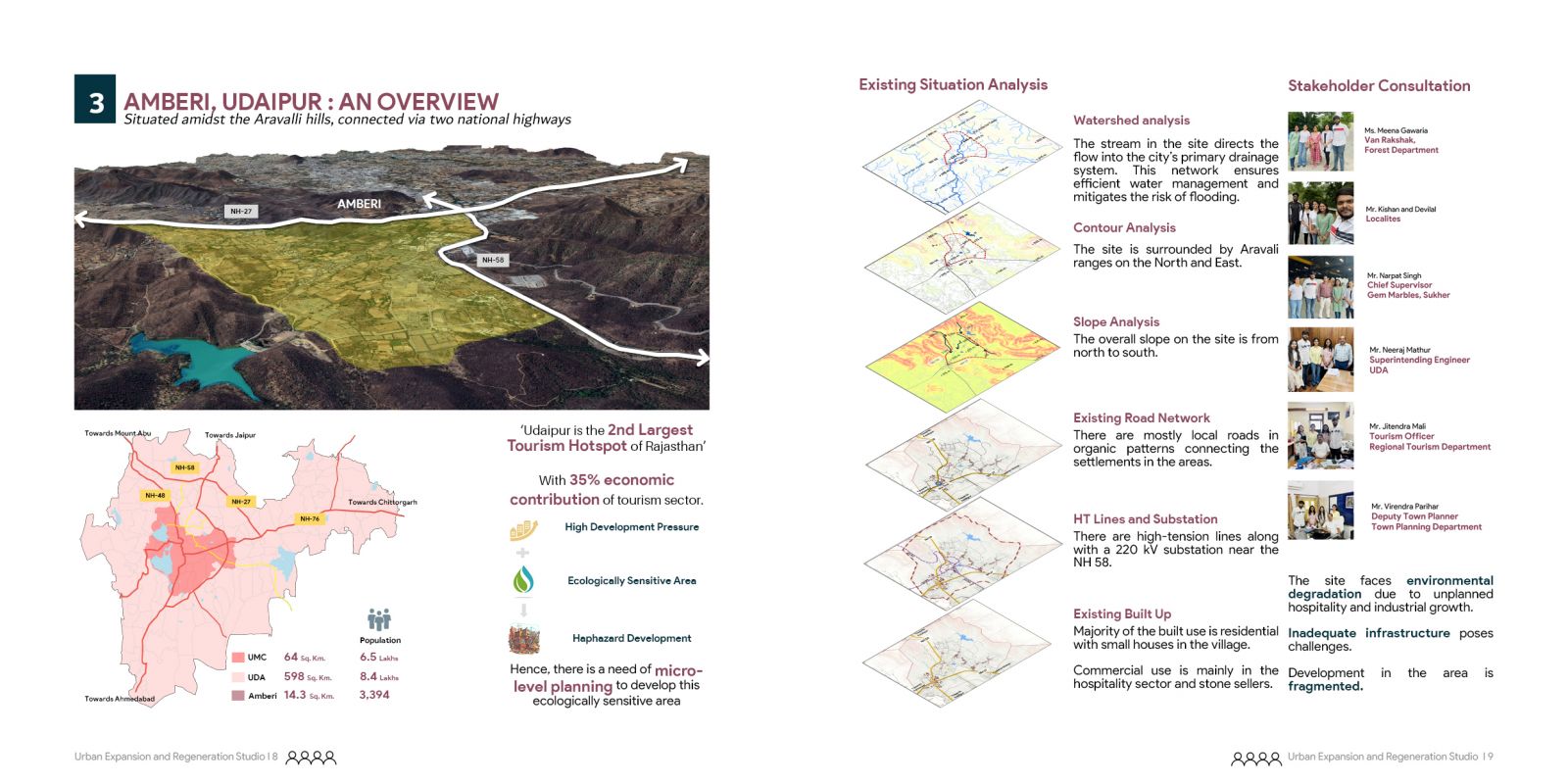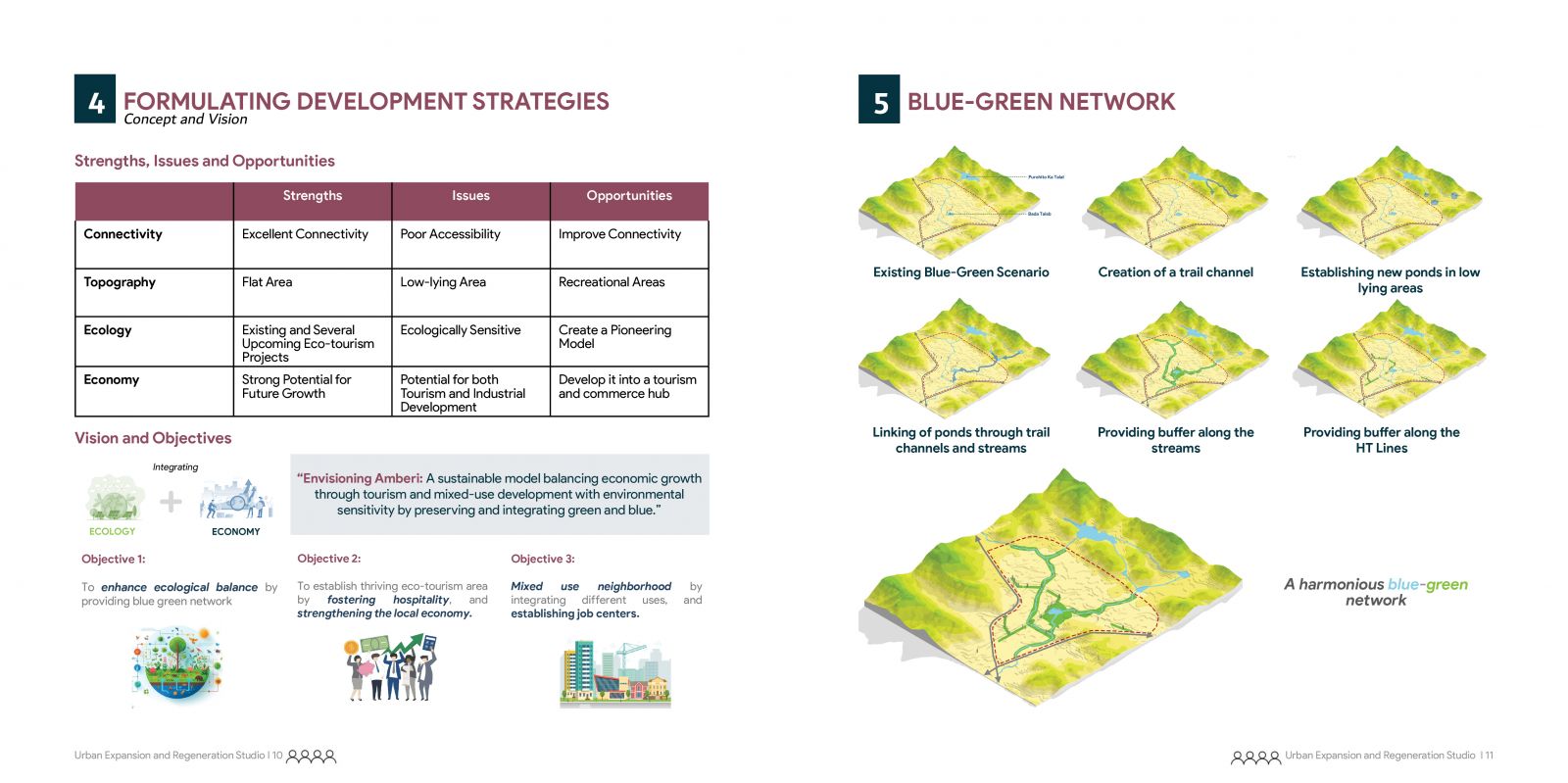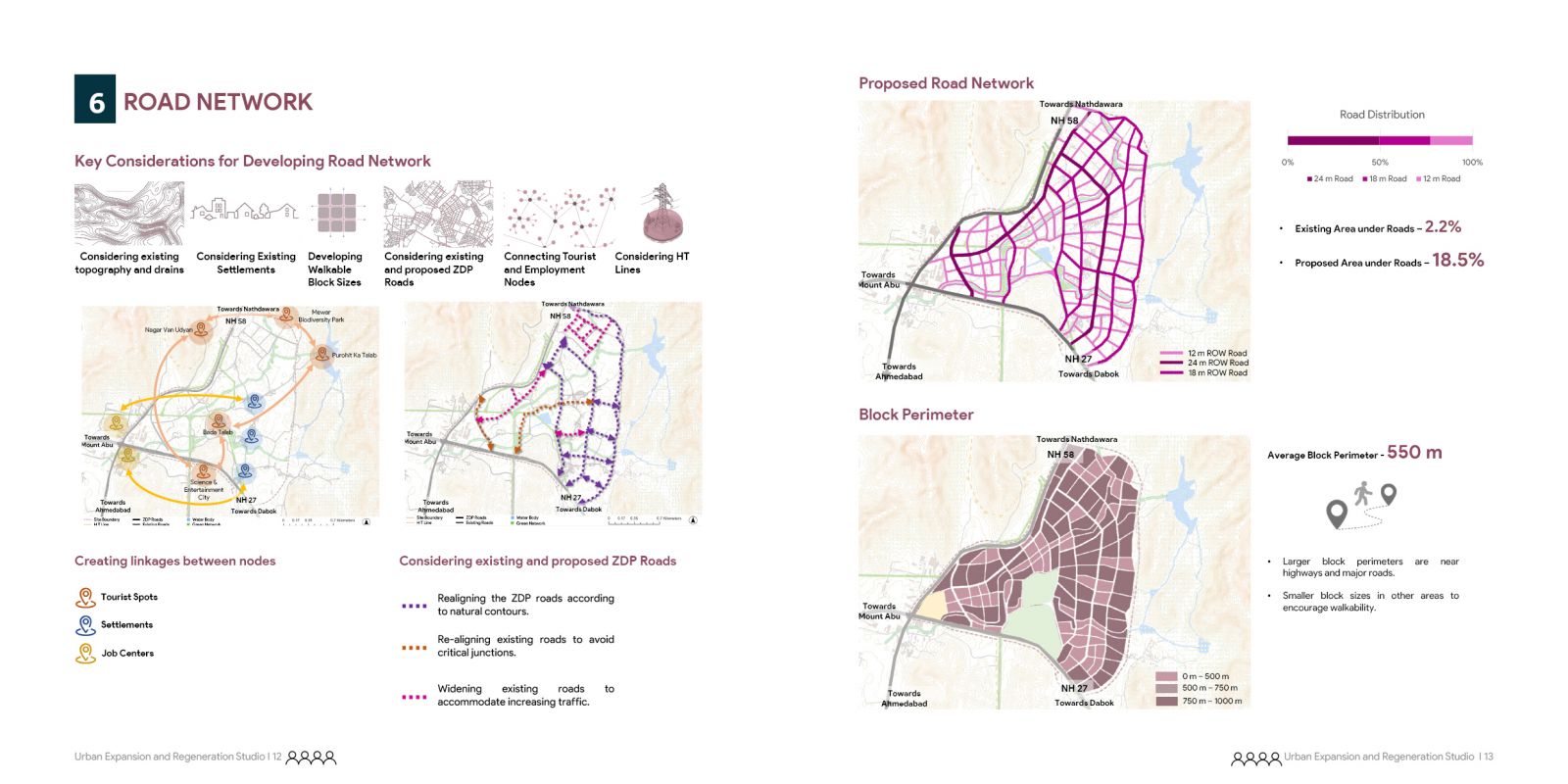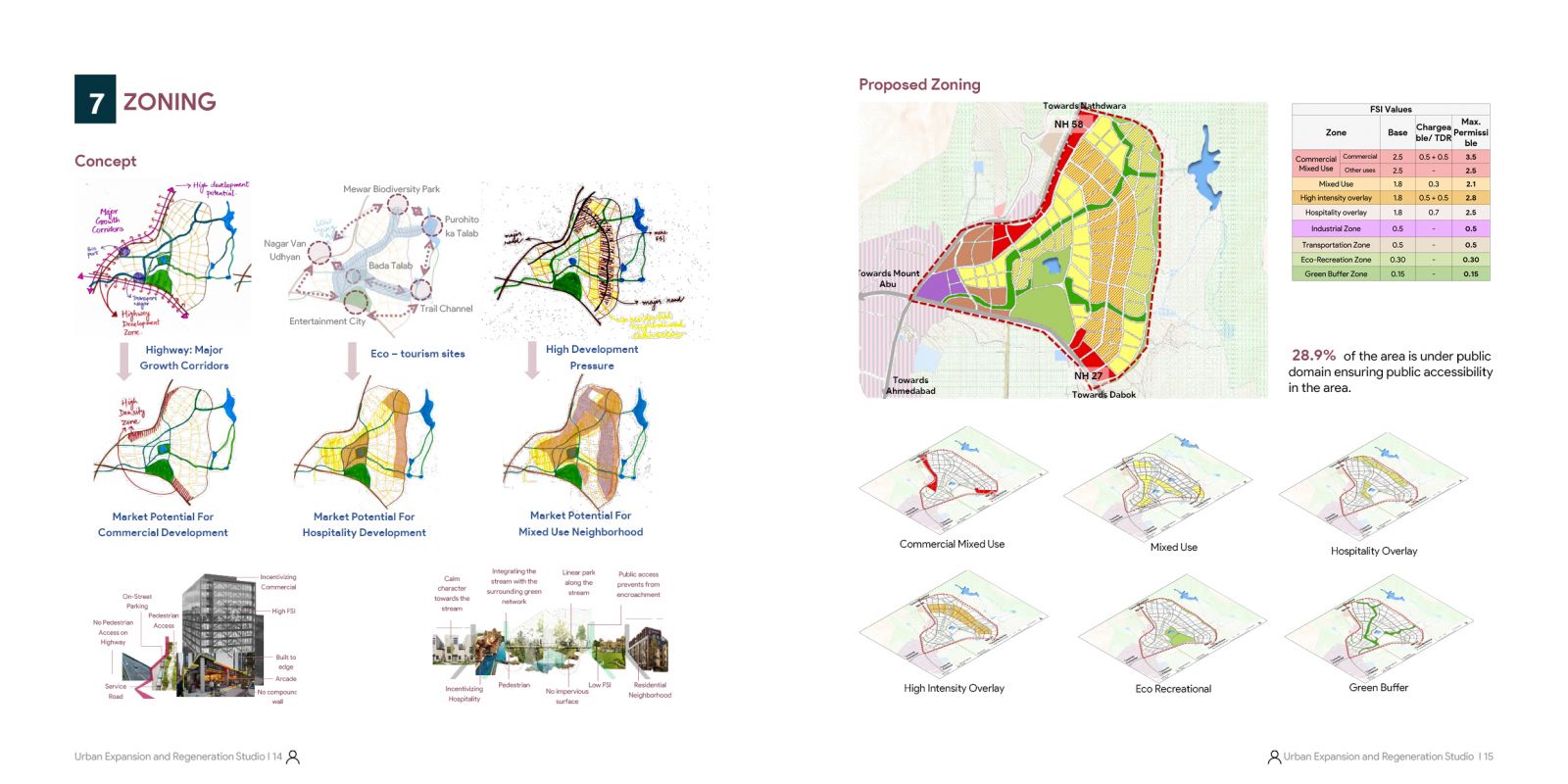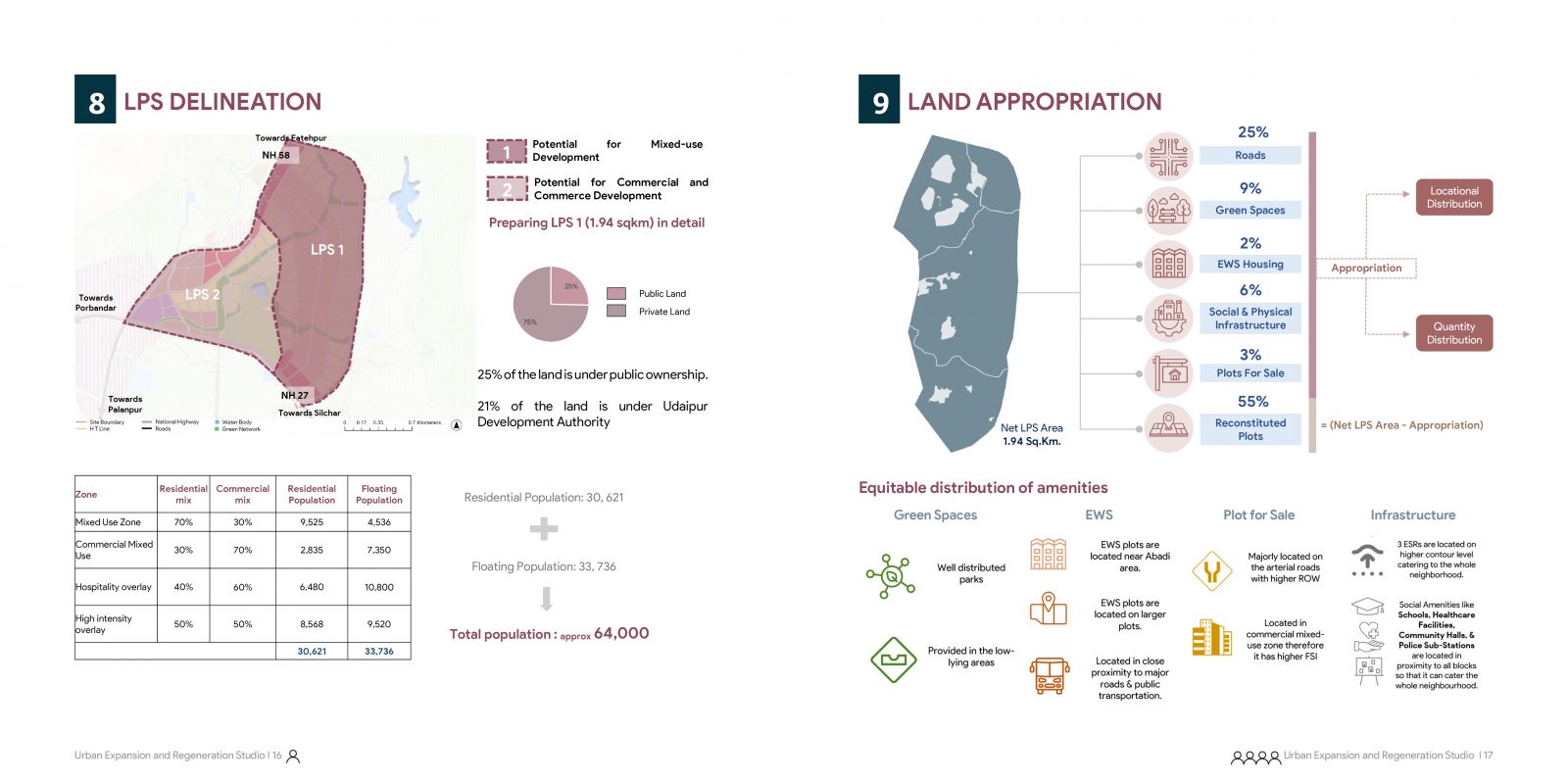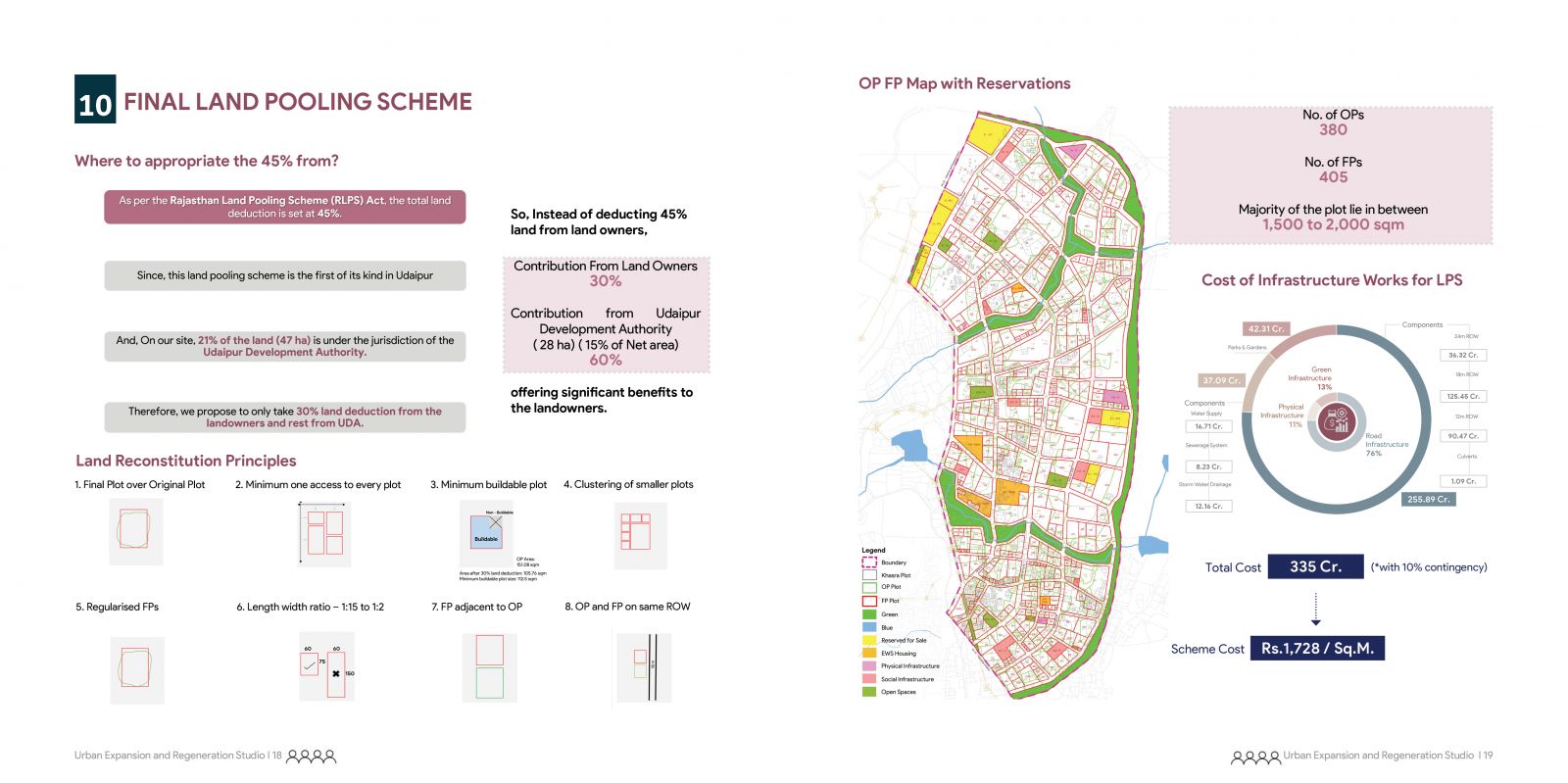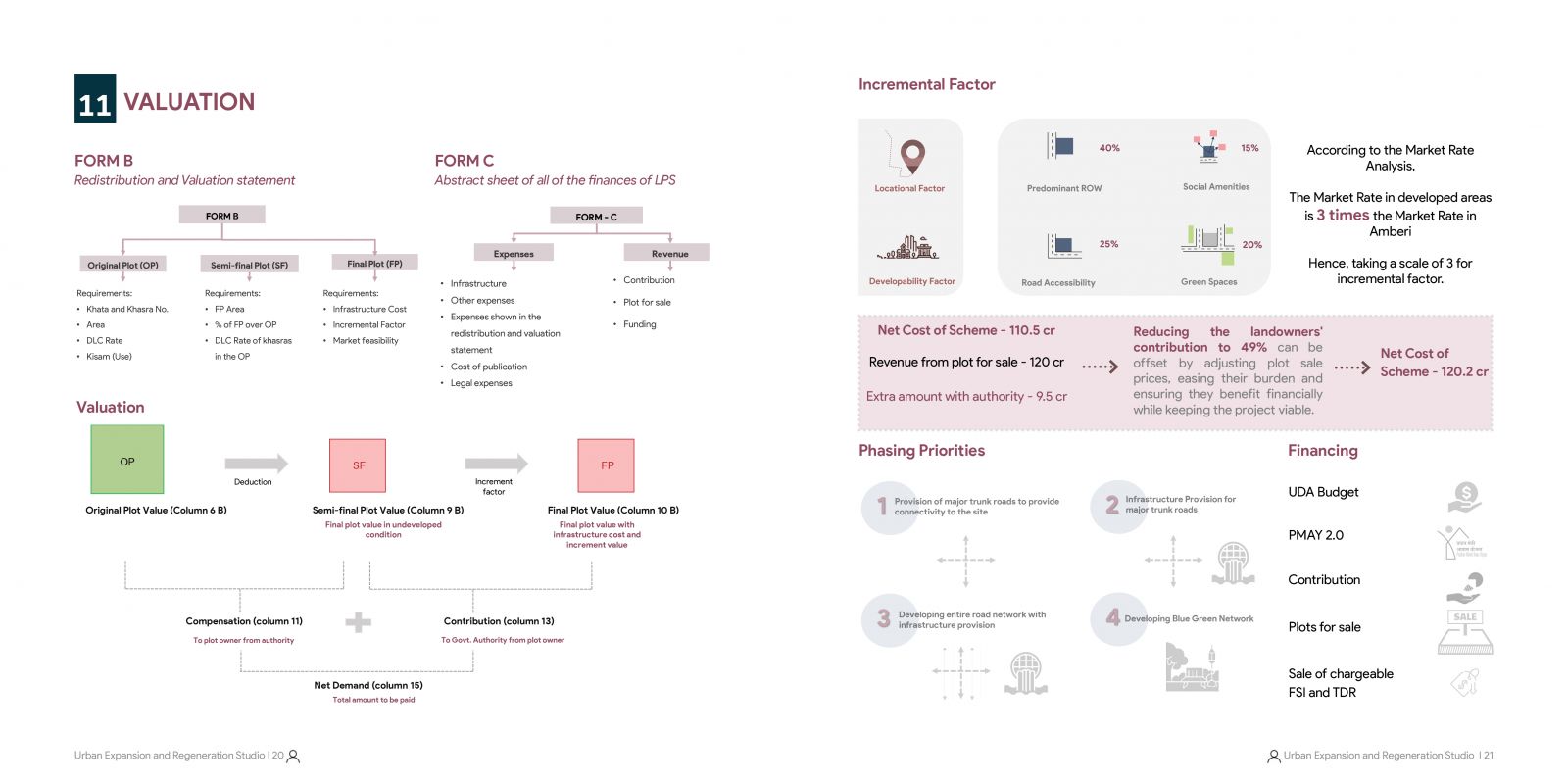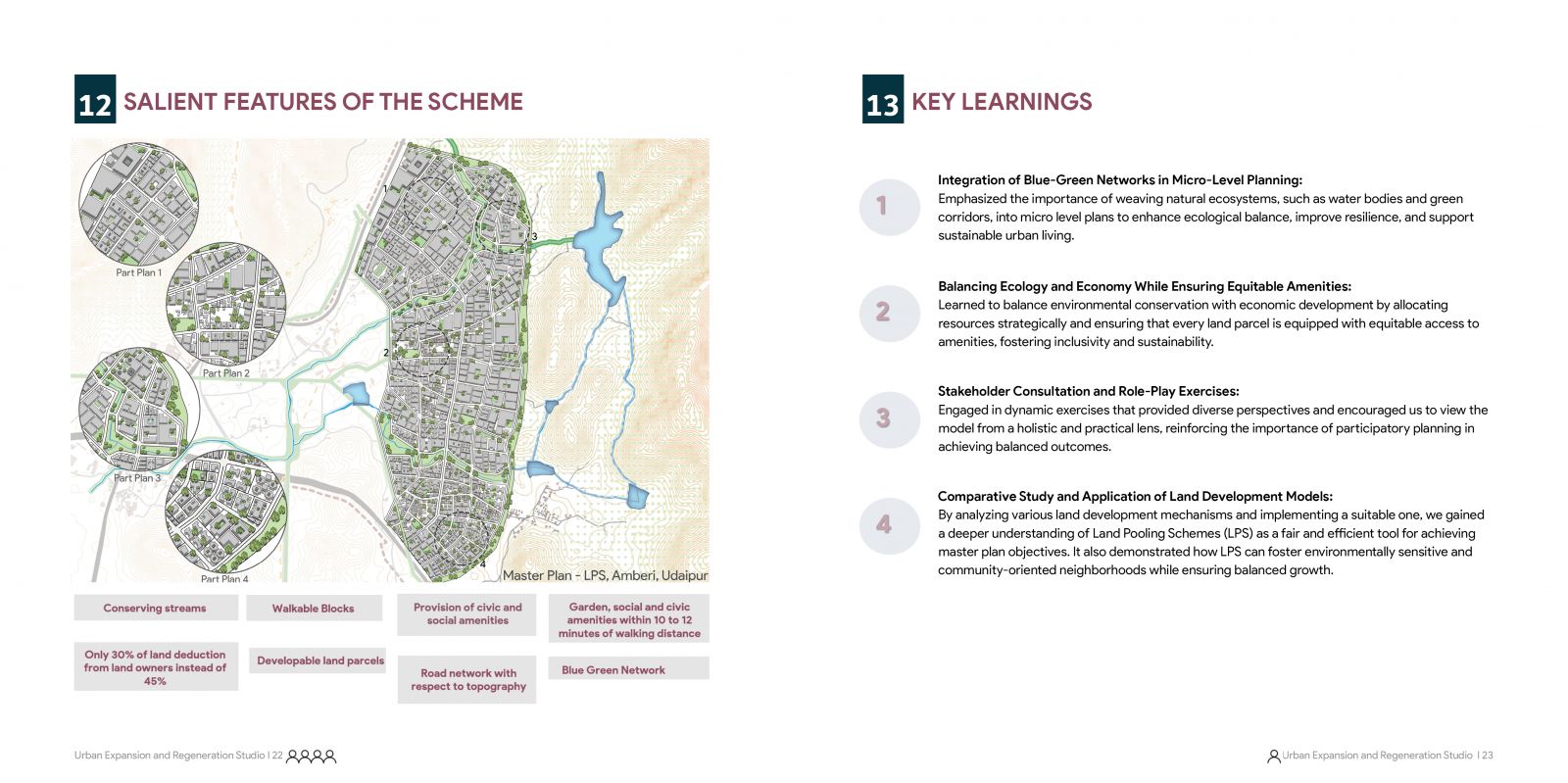Your browser is out-of-date!
For a richer surfing experience on our website, please update your browser. Update my browser now!
For a richer surfing experience on our website, please update your browser. Update my browser now!
The Amberi Land Pooling Scheme in Udaipur aspires to transform an ecologically sensitive area into a sustainable, tourism-driven growth hub. Spanning 3.5 sq. km near the intersection of NH-27 and NH-58, the project integrates eco-tourism, mixed-use development, and ecological conservation. Key proposals include the establishment of blue-green infrastructure, contour-aligned road networks, and disyribution of equitable land parcels. These elements are designed to harmonize environmental preservation with urban vibrancy. The plan also prioritizes sustainable development, aiming to create a dynamic hub for tourism, hospitality, and economic activity, while respecting the area’s unique ecological and cultural heritage. This innovative initiative sets a benchmark for balancing environmental sensitivity with growth-oriented urban development.
